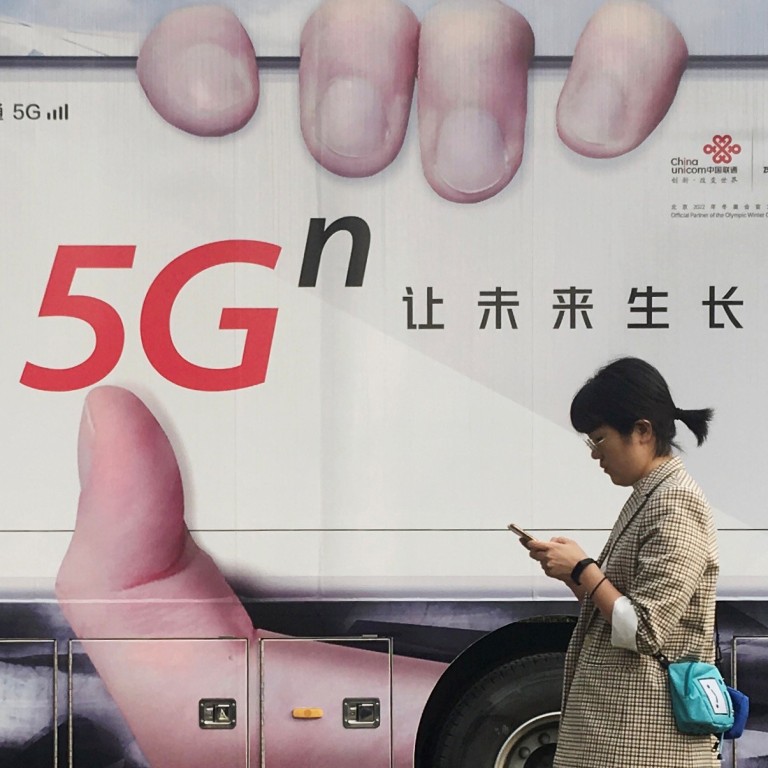
China’s 5G mobile service debuts to lack of applause from customers
- Too costly, too sparse, too slow for some users but phone prices expected to start falling next year
- China Unicom, China Telecom and China Mobile launch new service in 50 major cities
The highly anticipated debut of commercial 5G across China on Friday was underwhelming for some customers, who questioned the high price of the new high-speed data networks.
“A 5G phone, a city with 5G network, and being able to pay for the data package,” wrote one user on Weibo, the Chinese social media platform. “I’m missing all three requirements.”
Another, in Zhengzhou, capital of central China’s Henan province, was disappointed by the first day of the roll-out: “The coverage is pretty wide in Zhengzhou, but it isn’t as fast as I thought.”
China and the US are engaged in a race for technological dominance and 5G has been cited as a key battleground for key military and security strategic use. China is expected to invest more than US$150 billion in 5G by 2025, according to Goldman Sachs.
On the commercial side, hundreds of thousands of 5G base towers were set up across the country – including 10,000 in Beijing alone, according to the city’s communication administration bureau – in preparation for Friday’s launch in 50 major cities by the country’s three largest telecom operators, China Unicom, China Telecom and China Mobile.
Since September, users have been able to search for network coverage in Baidu maps, a popular navigation app. While Beijing is covered in blue, which signals coverage, there appear to be large gaps in other cities like Qingdao, in China’s eastern province of Shandong.
With download speeds of up to 1 gigabyte per second, 5G promises to accelerate internet use, from video streaming to self-driving cars. The gap between 4G and 5G was like the “difference between travelling on a bus or a Ferrari”, said Edison Lee, an analyst at Jefferies, a financial services company in Hong Kong.
Plans start at 128 yuan (US$18) a month for 30 gigabytes of data, which some have said is more expensive than their current plans. And, to use it, consumers need 5G-compatible mobile phones, making it more costly.
Lightning-fast mobile downloads in an ancient Chinese water town
A budget 5G Xiaomi phone unveiled in September sells for about 3,699 yuan, which the company’s chief executive Lei Jun said was subsidised to “let more people have a chance to use 5G phones”.
A high-end Huawei Mate X 5G phone is expected to debut at 16,999 yuan, twice the average salary of an urban Chinese worker.
Zahid Ghadialy, principal analyst at 3G4G, a London-based consultancy focused on wireless technologies, said the cost of 5G would not be competitive for several years compared to its predecessors.
“5G phones are expensive mainly because of expensive components, intellectual property rights and research and development,” he said. “This will fall next year, but will take at least until 2022 to reach similar levels as 4G phones.”
Lee said that for daily use “there is no need to upgrade”, but “fashion-conscious consumers” would anyway.
A Weibo user said practical concerns may take priority over faster internet speeds and its benefits.
“The cost of the cheapest data package is about what I spend on food for six days,” the user wrote. “I can’t afford it.”

